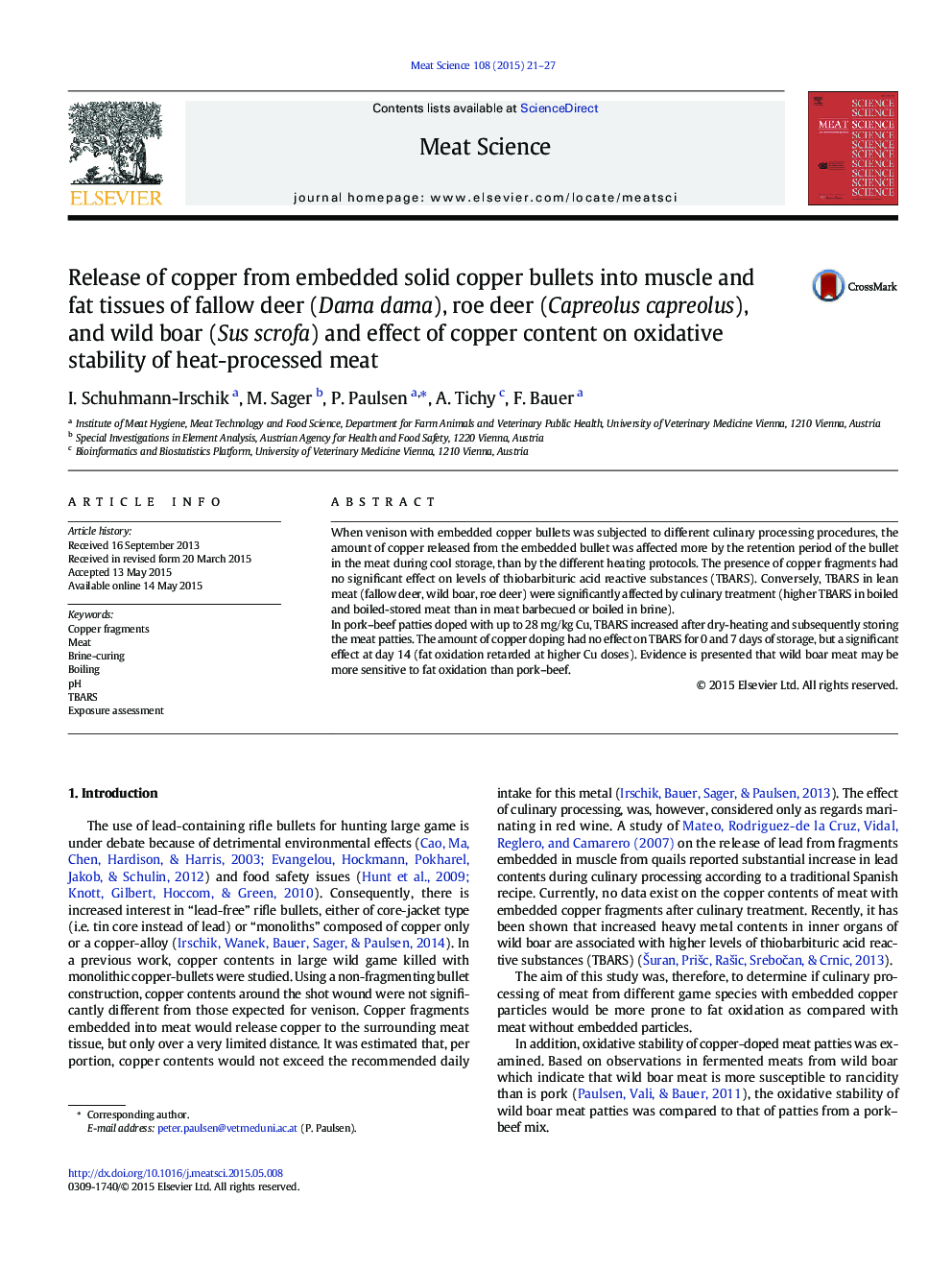| کد مقاله | کد نشریه | سال انتشار | مقاله انگلیسی | نسخه تمام متن |
|---|---|---|---|---|
| 5791179 | 1554086 | 2015 | 7 صفحه PDF | دانلود رایگان |

- The amount of copper released from copper bullets embedded in venison was <Â 7Â mg/kg.
- Copper fragments in venison during heat-processing had no significant effect on TBARS levels.
- TBARS in lean venison were significantly affected by culinary treatment.
- In pork-beef patties doped with 7-28Â mg/kg Cu, TBARS increased after dry-heating and storage.
- Fat oxidation after heating and storage was retarded with increasing Cu doses (7-28Â mg/kg).
When venison with embedded copper bullets was subjected to different culinary processing procedures, the amount of copper released from the embedded bullet was affected more by the retention period of the bullet in the meat during cool storage, than by the different heating protocols. The presence of copper fragments had no significant effect on levels of thiobarbituric acid reactive substances (TBARS). Conversely, TBARS in lean meat (fallow deer, wild boar, roe deer) were significantly affected by culinary treatment (higher TBARS in boiled and boiled-stored meat than in meat barbecued or boiled in brine).In pork-beef patties doped with up to 28Â mg/kg Cu, TBARS increased after dry-heating and subsequently storing the meat patties. The amount of copper doping had no effect on TBARS for 0 and 7Â days of storage, but a significant effect at day 14 (fat oxidation retarded at higher Cu doses). Evidence is presented that wild boar meat may be more sensitive to fat oxidation than pork-beef.
Journal: Meat Science - Volume 108, October 2015, Pages 21-27